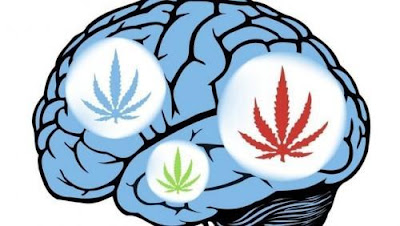A lucky rabbit foot. A glass of wine. A pill. What do these things all have in common? Their effects -- whether we do well on a test, whether we mingle at the cocktail party, whether we feel better -- all depend on the power of suggestion.
In a new article, psychological scientists Maryanne Garry and Robert Michael of Victoria University of Wellington, along with Irving Kirsch of Harvard Medical School and Plymouth University, delve into the phenomenon of suggestion, exploring the intriguing relationship between suggestion, cognition, and behavior. The article is published in the June issue of Current Directions in Psychological Science, a journal of the Association for Psychological Science.
Over their research careers, Garry and Kirsch have both studied the effects of suggestion on cognition and behavior. Kirsch focused mostly on suggestion in clinical psychology, while Garry, whose work is supported by the Marsden Fund of New Zealand, was interested in the effects of suggestion on human memory. When the two got to talking, "we realized that the effects of suggestion are wider and often more surprising than many people might otherwise think," says Garry.
Across many studies, research has shown that deliberate suggestion can influence how people perform on learning and memory tasks, which products they prefer, and how they respond to supplements and medicines, which accounts for the well-known placebo effect.
But what can explain the powerful and pervasive effect that suggestion has in our lives? The answer lies in our 'response expectancies,' or the ways in which we anticipate our responses in various situations. These expectancies set us up for automatic responses that actively influence how we get to the outcome we expect. Once we anticipate a specific outcome will occur, our subsequent thoughts and behaviors will actually help to bring that outcome to fruition.
So, if a normally shy person expects that a glass of wine or two will help him loosen up at a cocktail party, he will probably feel less inhibited, approach more people, and get involved in more conversations over the course of the party. Even though he may give credit to the wine, it is clear that his expectations of how the wine would make him feel played a major role.
But it's not just deliberate suggestion that influences our thoughts and behaviors -- suggestions that are not deliberate can have the very same effects. As the authors point out, "simply observing people or otherwise making them feel special can be suggestive," a phenomenon termed the Hawthorne effect. As a result, people might work harder, or stick to a task for longer. And this case is more worrying, says Garry, "because although we might then give credit to some new drug or treatment, we don't realize that we are the ones who are actually wielding the influence."
It is for precisely this reason that the issue of unintentional suggestion has important implications for academic researchers. "In the scientific community, we need to be aware of -- and control for -- the suggestions we communicate to subjects," says Garry. The authors note that some recent failures to replicate previous research findings may ultimately be explained by such unintentional suggestion. "Recent research suggests that some of psychological science's most intriguing findings may be driven, at least in part, by suggestion and expectancies," Garry observes. "For example, a scientist who knows what the hypothesis of an experiment is might unwittingly lead subjects to produce the hypothesized effect -- for reasons that have nothing to do with the experiment itself."
And the unintended effects of suggestion aren't just restricted to the laboratory -- they cut across many real world domains, including the fields of medicine, education, and criminal justice. For example, converging evidence on eyewitness identification procedures demonstrates that the rate of false identifications is significantly higher when lineups are conducted by people who know who the suspect is than when the lineups are conducted by people who don't.
While research has provided clear evidence for the phenomenon of suggestion, there is still much more to learn about the underlying relationship between suggestion, cognition, and behavior. As the authors point out, researchers still don't know where the boundaries and limitations of these effects lie. "And, if a 'real' treatment and a 'suggestion' lead to a similar outcome, what differentiates between the two?" says Garry. Understanding these issues has important real world implications. "If we can harness the power of suggestion, we can improve people's lives."
Source: Association for Psychological Science [June 06, 2012]


































